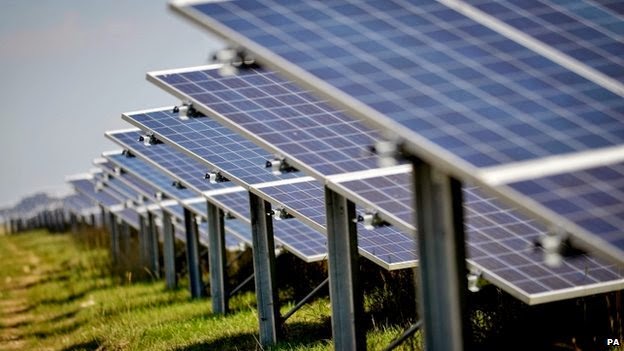UN: 'Massive shift' needed on energy
A UN report on climate change is expected to call for a trebling of the planet's use of renewable energy sources such as solar and wind power.
The report is also expected to argue that the trend of increased carbon emissions can only be reversed if a "massive shift" in energy use is made.
Scientists will also cautiously endorse a shift to natural gas an alternative to carbon intensive sources.
The report will be released on Sunday at a press conference in Berlin.
It will argue that if significant action isn't taken by 2030, global temperatures could rise by more than 2 degrees C.
Such a rise in temperature would be highly dangerous, the report will argue.
Sunday's report will focus on instructing governments and organisations on how to take action to avoid dangerous climatic change.
However, some developing countries have argued that the costs associated with switching energy sources should be borne proportionately by all.
The report will criticise the rising use of coal and other fossil fuels among developing countries.
It will also argue that the technology already exists for more cleaner, more efficient energy sources.
'Severe and irreversible'
This is the third in a series of highly-anticipated reports by the Intergovernmental Panel on Climate Change (IPCC).
The first report argued that human action was the primary cause of global warming.
The second, released in March, outlined the effects of climate change on individuals and societies.
It argued that the impacts of global warming are likely to be "severe, pervasive and irreversible".
The three reports are part of the Fifth Assessment Report, a major study of the effects and causes of climate change.
http://www.bbc.com/news/science-environment-27007486
Comments